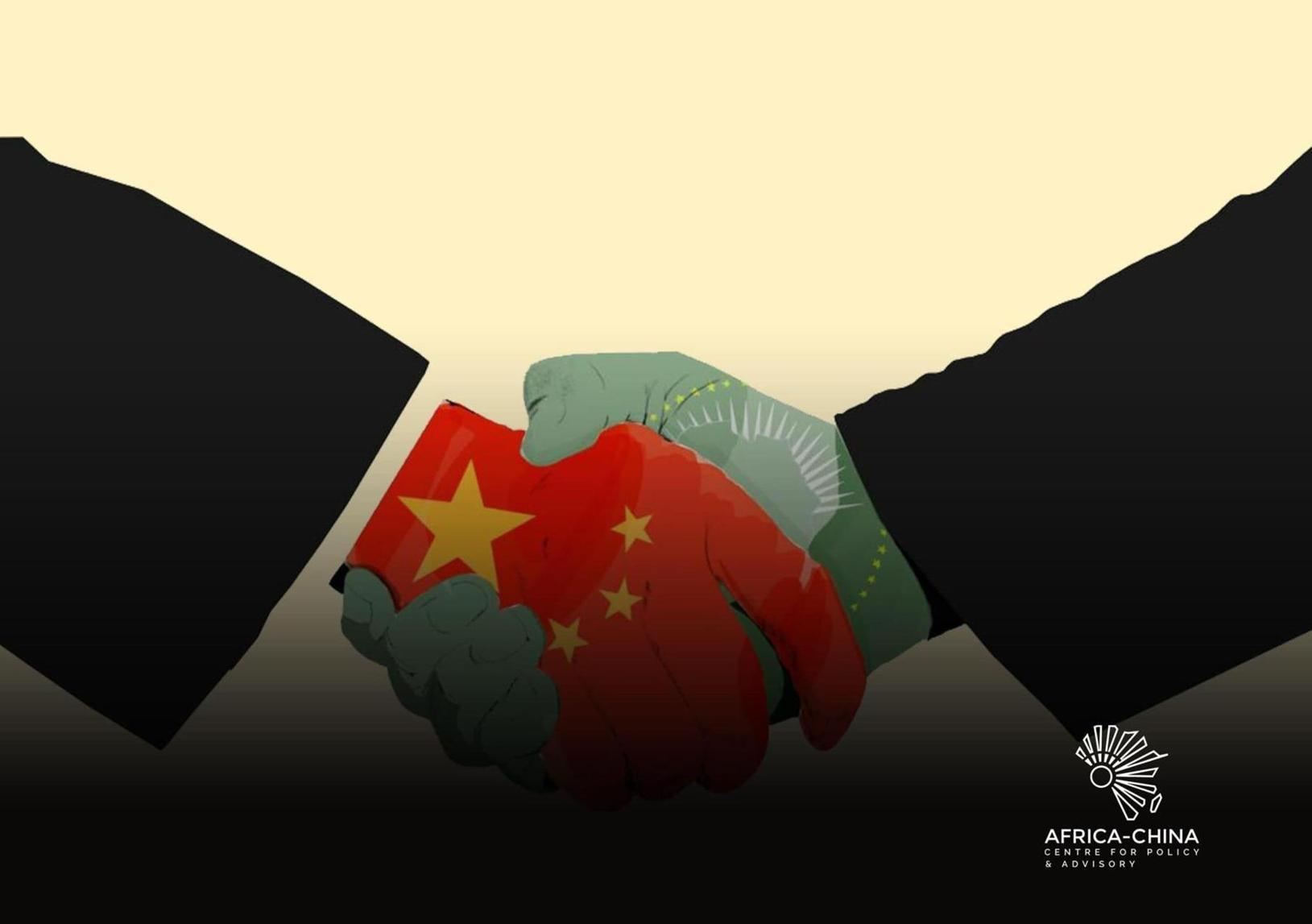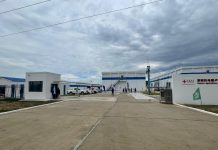writes Paa Kwesi Wolseley Prah and Christian Kaunert
Africa-Press – Lesotho. The Chinese government has taken its time and built deep relationships across Africa. Its foreign minister’s annual trip to the continent is symbolic of this approach.
In January 2025, Chinese Foreign Minister Wang Yi visited Chad, the Republic of Congo, Namibia, and Nigeria. This represents far more than diplomatic ceremony. This will be the 35th consecutive year that China’s foreign minister has visited Africa on the first overseas trip of the year. It embodies China’s systematic approach to continental engagement that began in 1991. Since then, what started as an annual diplomatic courtesy has transformed into a powerful instrument of geopolitical influence. The ritualistic nature of these visits: formalised, repetitive, and symbolic, has evolved into a strategic mechanism that weakens Western influence while positioning China as Africa’s primary external partner.
Chad: Securing critical minerals
China has elevated its relationship with Chad to a strategic partnership, emphasising mutually beneficial cooperation and development. Foreign Minister Wang Yi’s inclusion of Chad in his 2025 tour signals China’s focus on securing global supply chains of the critical minerals essential for high-tech and clean energy sectors. This visit carries profound implications for Western technological independence and energy transition strategies. Chad’s mineral wealth—particularly lithium and rare earth elements—represents a cornerstone of 21st-century geopolitical power. The timing of Wang Yi’s visit coincides with Western nations’ desperate attempts to reduce their dependence on Chinese-controlled supply chains.
About 14 per cent of all US imports still come from China, down from a peak of 21.6 per cent in 2017. Despite this, China remains deeply embedded in global supply chains due to its scale, efficiency, manufacturing ecosystem, and integration in many sectors. The West’s drive to diversify from China is largely motivated by a combination of geopolitical risks, supply chain security concerns, rising labour costs in China, and trade tensions, notably since the US-China trade war started around 2018.
By deepening ties with Chad during this critical period, China effectively pre-empts Western efforts to diversify their own supply of minerals. Wang Yi said China is willing to work with Chad to promote the all-round development of the China-Chad strategic partnership. This includes China’s importing from Chad mineral fuels, oils, distillation products which was around £560 Million in 2024. This secures or guarantees China’s ability to obtain critical resources, such as rare earth elements, minerals, or other commodities vital for industries like technology, manufacturing, or defence. This mineral diplomacy undermines Western influence by creating economic realities that transcend political relationships. Even if Western powers increase their diplomatic engagement with Chad, the physical infrastructure and contractual obligations established before and during Wang Yi’s visit will persist.
African leaders increasingly recognise that China offers tangible, immediate benefits for their natural resources. China’s model of pairing resource extraction with quick infrastructure delivery backed by state support and a political non-interference principle, makes it a preferred partner for many African leaders seeking tangible, immediate development benefits. By contrast, Western engagement often comes with political conditionality and delayed implementation.
Namibia: Atlantic strategy
During his visit to Namibia, Wang Yi called the country China’s “major maritime partner on Africa’s Atlantic seaboard”. The Namibian Ports Authority (Namport) has benefited greatly from Chinese collaboration, particularly through the construction of the Walvis Bay container terminal by China Harbor Engineering Company (CHEC). This terminal, commissioned in 2019, has more than doubled Namport’s cargo handling capacity from 350,000 to 750,000 TEUs (twenty-foot equivalent units). This has significantly enhanced Namibia’s role as a maritime gateway for southern African countries. Besides infrastructural development, China’s partnership extends to port digitalisation, green technologies, and skills transfer to support Namibia’s port modernisation and efficiency goals.
Foreign Minister Wang Yi’s visit to Namibia represents more than strengthening diplomatic and commercial infrastructure development cooperation. It constitutes a potential challenge to Western naval dominance in the South Atlantic. The visit included discussions about expanding Chinese port facilities, deepening maritime cooperation agreements, and potentially establishing Chinese naval access arrangements.
As China develops what amounts to a string of pearls across Africa’s Atlantic coastline, it positions itself to influence or potentially disrupt trade flows that have historically been under Western control. These ports serve dual purposes: facilitating legitimate trade while providing potential staging areas for Chinese naval operations should geopolitical tensions escalate. Western maritime influence in the South Atlantic has historically relied on NATO partnerships and friendly port access. Wang Yi’s visit to Namibia signals China’s intention to challenge this arrangement by offering African nations alternative security partnerships and economic benefits. The infrastructure investments discussed during the visit create facts on the ground that persist regardless of political changes, embedding Chinese influence in Africa’s maritime infrastructure.
Nigeria: Regional institutional capture
By visiting Nigeria, Wang Yi was not only shoring up bilateral ties, he was also expanding Chinese involvement in the Economic Community of West African States (ECOWAS).
The new Chinese-built and financed ECOWAS headquarters was opened in February 2025 and is known as “The Eye of West Africa.”
This visit demonstrates China’s strategy of institutional capture at the regional level, creating influence that extends across multiple African nations simultaneously. The symbolism of Wang Yi’s visit, occurring just weeks before African leaders gather in a Chinese-built facility to discuss West Africa’s future, is unmistakable and intentional.
This institutional capture operates at multiple levels: Chinese-funded infrastructure projects create employment and economic opportunities that generate genuine popular support, while the debt these projects create provides China with leverage over policy decisions. Through Wang Yi’s engagement with Nigeria and ECOWAS, China positions itself as the primary external partner for West African economic integration. The new ECOWAS headquarters represents a physical manifestation of Chinese soft power, ensuring that every regional decision is made within a Chinese-provided framework.
Systematic erosion of Western influence
The cumulative effect of Wang Yi’s annual tours represents a systematic erosion of Western influence across Africa. Unlike Western engagement, which often responds to crises or specific policy objectives, China’s ritualistic diplomatic approaches create sustained, predictable partnerships that African leaders can rely upon. This consistency has allowed China to build relationships while Western attention was focused elsewhere. Wang Yi’s visits demonstrate China’s comprehensive approach: combining infrastructure investment, trade partnerships, and institutional development. It has proved more effective than traditional Western tools of aid, military intervention, and diplomatic pressure.
Traditional Western allies in Africa now increasingly vote with China in international forums, particularly on issues related to human rights and global governance. African nations have become more willing to challenge Western positions on international sanctions, particularly those targeting Russia and Iran. This shift reflects not just economic dependencies, but a broader realignment of geopolitical loyalties facilitated by sustained diplomatic engagement like Wang Yi’s tours.
This deepening integration will be difficult to reverse. As Chinese infrastructure projects mature and generate returns, African economies become increasingly integrated with Chinese supply chains and financial systems. This integration will create self-perpetuating cycles where African nations find it economically rational to deepen their relationships with China, regardless of political preferences. The technological dimension of relationships established through these visits will likely prove most consequential in the long run. As China extends its digital infrastructure across Africa—from telecommunications networks to digital payment systems—it gains unprecedented access to data and economic flows. Climate change adds another layer of complexity to relationships established through Wang Yi’s visits. As African nations seek to adapt to environmental challenges and develop renewable energy capabilities, China’s control over critical minerals and clean energy technologies positions it as an indispensable partner. This environmental dimension of dependency may prove more durable than purely economic relationships.
The West faces a critical juncture in responding to China’s systematic diplomatic capture of Africa. One that requires a fundamental recalibration of engagement strategies that move beyond reactive crisis management toward sustained, predictable partnership models. To counter China’s ritualistic approach, Western nations must develop their own institutional mechanisms for consistent African engagement, rather than episodic attention.
Western powers must recognise that countering Chinese influence requires not just competing for Africa’s resources and allegiances, but offering African nations a compelling vision of partnership that acknowledges their agency as equal stakeholders in shaping global governance structures. Without this approach Africa, will keep looking East.
LSE
For More News And Analysis About Lesotho Follow Africa-Press






